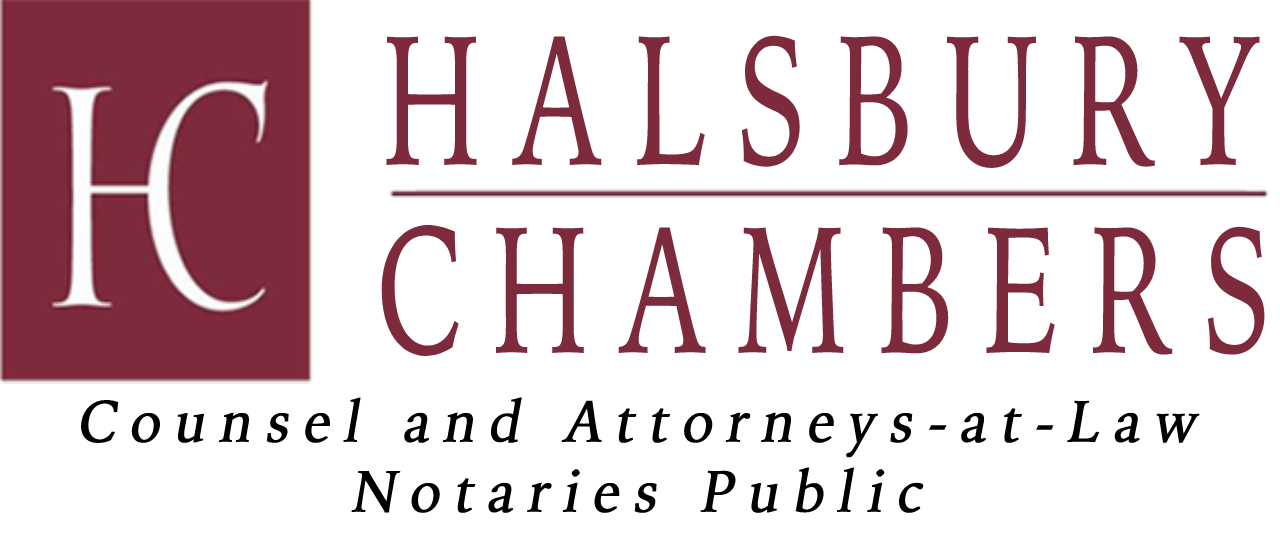FREQUENTLY ASKED QUESTIONS
Questions on Intellectual Property
Q: What is “Intellectual Property”?
Intellectual Property is the collective name often given to the branch of law that deals with copyright, patents, trade marks, design right, registered designs, confidential information and related rights.
Q: What is a trademark?
A trademark is “a mark used or proposed to be used upon or in connection with goods for the purpose of indicating that they are the goods of the proprietor of such trade marks by virtue of manufacture, selection, certification, dealing with or offering for sale.”
Q: Do I need to register my intellectual property in the Bahamas to protect same?
Yes.
Q: Is there a law pertaining to Trademarks in the Bahamas?
Yes there is such a law in the Bahamas under the Trade Marks Act 1906.
Q: Can I register a Trademark in the Bahamas?
Yes you can. The mark must contain or consist of at least one of the particulars prescribed by the Trade Marks Act.
Q: What happens upon successful Registration of a Trademark?
The registration of a person as the owner of a trademark gives to such person the exclusive right to the use of such a mark or the owner’s goods in respect of which it was registered.
Q: What happens if someone uses my trademark without my permission? Do I have any recourse?
Yes you do. You can bring an action against the person for infringement of trade mark.
Q: If I bring an action for Infringement of Trademark, what relief can I obtain?
If you are successful, the remedies are an injunction, delivery up, an inquiry as to damages or an account of profits and costs.
Q: Can I sue a person for using my goods and/or services as if it were their own?
Yes, by way of “Passing Off”. Passing off has been described thus … “No man may pass of his goods as those of another.”
Q: What do I need to prove in order to win a claim that someone has been misusing my property, brand or other intellectual property as if it were their own?
The Plaintiff will have to prove: a) goodwill or reputation b) must demonstrate a misrepresentation c) must demonstrate that you suffered loss and/or damage.
Q: What is a Tort?
A Tort is a civil wrong such as negligence.
Q: What is Defamation?
Defamation is the publication of a statement which reflects on a person’s reputation and tends to lower him in the minds of right-thinking members of society generally or tends to make them shun or avoid him.
Q: What is Slander?
Slander is oral defamation.
Q: What is Negligence?
Negligence is the breach of a legal duty to take care which results in damage.
Q: Can I be sued for assaulting a person?
Yes you can. Assault and battery are crimes as well as torts.
Q: What is unjust enrichment?
The principle of unjust enrichment requires first, that the defendant has been enriched by the receipt of a benefit, secondly that this enrichment is at the expense of the claimant, thirdly that the retention of the enrichment be unjust and finally that there is no defence or bar to the claim. A common example of unjust enrichment is when the Bank mistakenly credits your account.
Q: Can I bring an action in deceit?
Deceit can be described as a tort (civil wrong) which arises where a defendant makes a false statement of fact knowing that it is false and intending the claimant to act on it and the claimant does act on it to his detriment.
In order to sustain the common law action of deceit, the following facts must be established:
a) There must be a representation of fact made by words or by conduct.
b) The representation must be made with knowledge that it is false.
c) The representation must be made with the intention that it should be acted upon by the claimant in the manner which resulted in damage to him.
d) It must be proved that the claimant acted upon the false statement.
e) It must be proved that the claimant has sustained damage by so doing.
